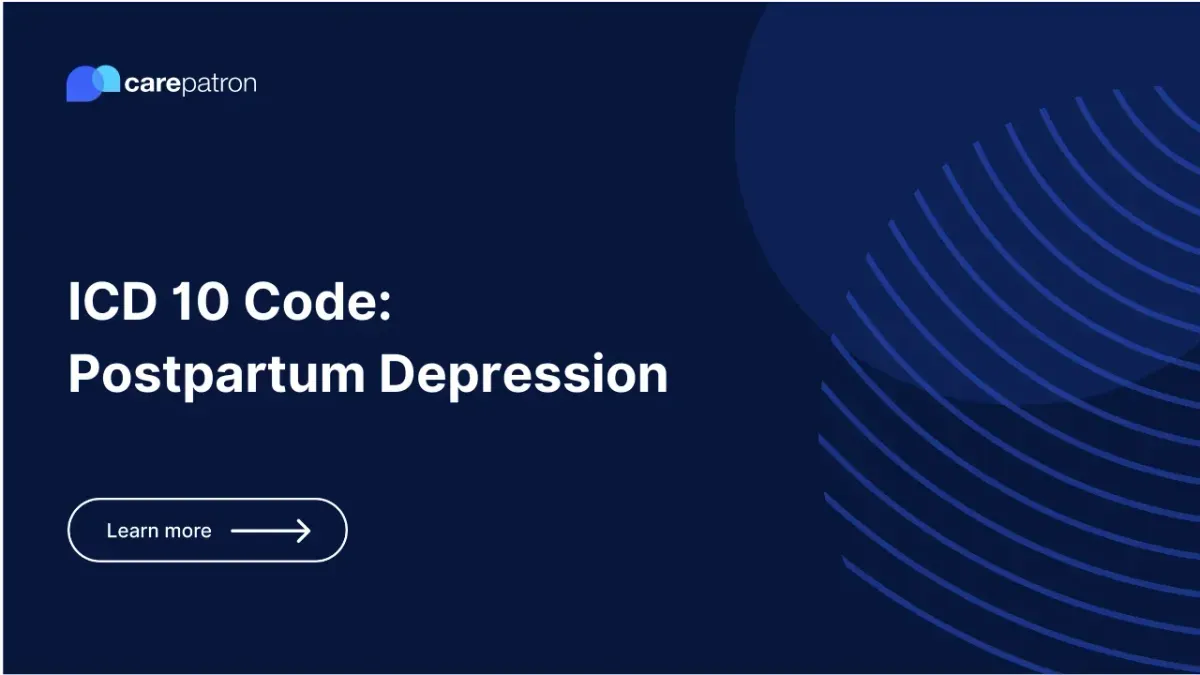
Postpartum Depression ICD-10-CM Codes | 2025
Explore 2025 ICD-10-CM codes for postpartum depression, including billable diagnoses, symptoms, treatments, and screening tools for maternal mental health.
Use Code
Commonly asked questions
Postpartum Depression ICD-10 codes should be used when diagnosing depressive symptoms that occur after childbirth, typically within the first year. These codes help document maternal mental health conditions for treatment, evaluation, and insurance purposes.
Yes, most postpartum depression ICD-10 codes, including F53.0 and O90.6, are billable for insurance claims. However, screening codes like Z13.31 may not always be reimbursed separately, as they’re often considered part of routine postpartum care.
Common treatments include psychotherapy, antidepressant medications, and lifestyle interventions such as improved sleep, diet, and physical activity. In more severe cases, treatment may involve coordinated care with mental health specialists and medication management.
EHR and practice management software
Get started for free
*No credit card required
Free
$0/usd
Unlimited clients
Telehealth
1GB of storage
Client portal text
Automated billing and online payments
